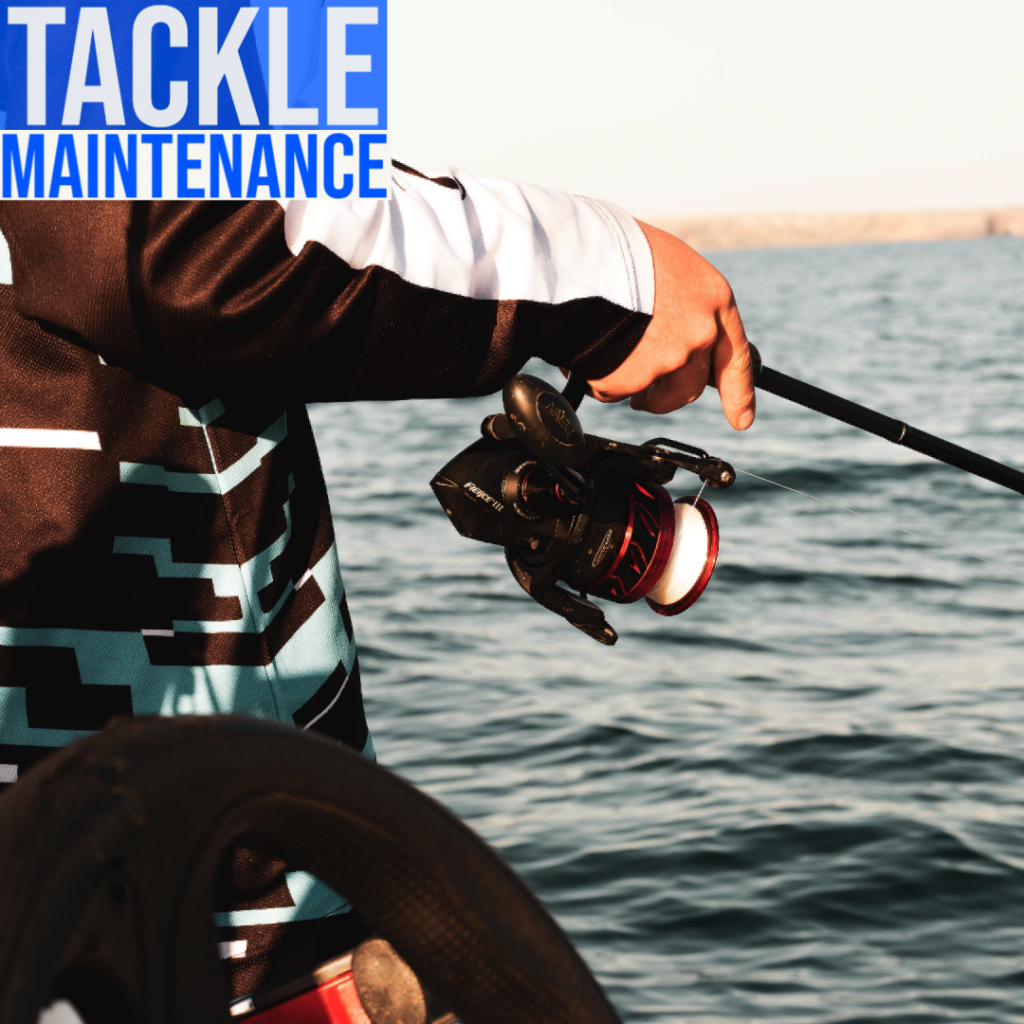
Like every year, as summer fast approaches after winter, many anglers seem to have neglected the maintenance of their fishing tackle. Why not take an afternoon to sort, clean and service your fishing tackle, so it’s all ready to go when needed? Proper tackle maintenance is essential for any rods, reels, lures and other accessories regardless of price. If you want your tackle to be in the best shape possible ready for summer, read on to find out what you need to do, to ensure your tackle remains at its best. So sit down on the next windy day, and get stuck into it.
Reels
Reels are possibly the most important piece of kit to maintain. A smooth drag, rust free bearings, and correctly lubricated moving parts can make the difference between feeling (and fishing) brand new or better, or between feeling like something you want to throw in the water every times it pokes it head out of a dusty corner in the shed. Ideally, you want to get your reels serviced by a professional. It really depends how often the reel is used, but if it sees a lot of use (weekly or more) a full service every one or two years is best. Self service is crucial to the upkeep of a reel in the mean time. Oil all bearings with a reel oil, and grease the main gears. Clean the reel down with warm water and a rag with the drag tightened down. You can also remove the drag stack and clean with methylated spririts and regrease for a smooth drag. It’s amazing how many anglers spend $500+ on a reel only to let it roll around the boat, get smeared with bait, dunked in the water and left in a corner. At the same time, some guys spend $100 on a reel, clean it and oil it with each use, and it feels a million bucks for the next 10 years. It’s all about proper maintenance with reels.
If you feel like your reel needs a little more care, all the major suppliers offer servicing and repairs. This can be organised through our Tackle Shack, just bring the reel past and let us know what needs to be done.
Rods
Rods don’t require maintenance as such, however a routine clean and checkover is free and recommended highly. Wipe the rods down using a clean rag, warm water and soap. Use methylated spirits to clean old cork or EVA grips. Check all of the guides- make sure there are no chips or cracks in the inserts which are guaranteed to cut your line when you least want it. For those who have an old rod in need of TLC, any parts can be replaced from guides to grips- or a full rebuild. Roller guides will also need oiling every few months to ensure longevity. These must be washed with freshwater after each use.
Lures
Lures are something often neglected and quickly get left in an old tackle box and thrown out. It’s amazing how quickly a brand new lure can turn a bit rusty and worse for wear, but it’s also amazing what a minutes cleaning can do to make that lure once again brand new. Empty your tackle boxes into a tub of hot water and dishwashing liquid. Then take each lure out and give it a wipe down with a clean rag to remove any grime. To finish, spray the metal components with some Inox to prevent or remove rust and wipe down again. Ensure to clean well with freshwater to remove any chemical scent or residue which can deter fish. Your lures will be sparkling and perfect to go. For more wrecked lures, a new paint job may be needed, which can be great fun for the inner artist. This truly brings lures back to life and makes them look even better than new. New hooks and split rings can be needed for many well used lures which is an easy fix with a set of split ring pliers.
Line
Line is something easier replaced than maintained, however for saltwater anglers, washing a reel with freshwater can be beneficial to line longevity. Commercial line conditioners are available for serious maintenance junkies.
Other Accessories
Just about every fishing accessory can be maintained in some way. Pliers and scissors can be cleaned and de-rusted using Inox and a rag, knives cleaned and sharpened, tackle boxes cleaned with dishwashing liquid, soft plastics re-organised into tubs/bags, hooks sharpened, jigheads cleaned and painted- the list ever ends! Of course, the most important of all may be a serviced boat/motor, with up to date safety equipment and batteries. Make sure trailer bearings, lights, rollers and chains are in working order.